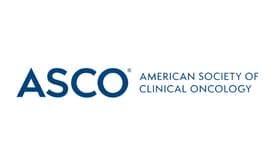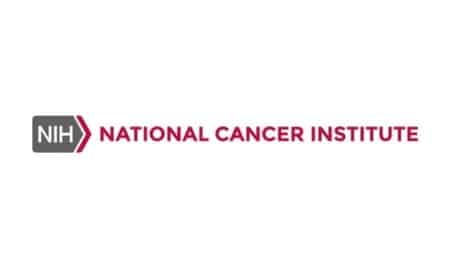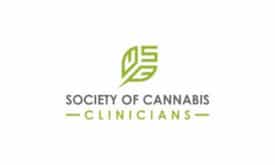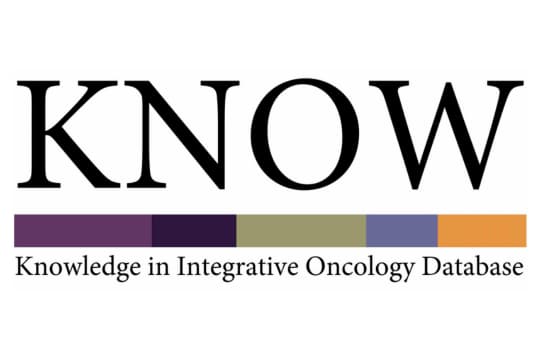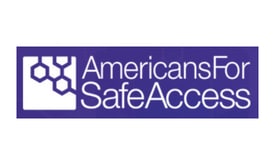Medical cannabis and cannabinoids in raw or dried flowers, oils, capsules, powders, edibles, and topicals may reduce pain, and some evidence shows benefit with nausea, vomiting, and sleep, but little evidence of improving treatment outcomes.
Are you a health professional?
This section does not replicate the other information on this topic but provides additional details or context most relevant to professionals.
Clinical practice guidelines
2024 guidelines provide these recommendations:
1.1 Health systems and clinicians, in partnership, should provide adults with cancer unbiased, evidence-based cannabis and/or cannabinoid educational resources to facilitate clinical communication, informed decision making, and systematized approaches to care.
1.2 Given the high prevalence of cannabis and/or cannabinoid use among adults with cancer, clinicians should routinely and nonjudgmentally inquire about cannabis use (or consideration of use) and either guide care or direct adults with cancer to appropriate resources.
Clinicians should remain sensitive to cannabis regulations’ disproportionate impacts on marginalized communities and work to omit cannabis-related and other biases (eg, racial, ethnic, and socioeconomic) from clinical discussions about cannabis and/or cannabinoids.
1.3 When adults with cancer use cannabis and/or cannabinoids outside of evidence-based indications or clinician recommendations, clinicians should explore goals, educate, and seek to minimize harm.
2.1 Clinicians should recommend against use of cannabis and/or cannabinoids to augment cancer-directed treatment unless in the context of a clinical trial (weak recommendation).
2.2 Clinicians should recommend against use of cannabis and/or cannabinoids in place of cancer-directed treatment (strong recommendation).
3.1 Adults with cancer who receive moderately or highly emetogenic antineoplastic agents with guideline-concordant antiemetic prophylaxis and experience refractory nausea or vomiting may augment their antiemetic regimen with dronabinol, nabilone, or a quality-controlled oral 1:1 THC:CBD extract (weak recommendation).
3.2 Outside of a clinical trial, clinicians should not recommend that adults with cancer use 300 mg or more per day of oral CBD to manage symptom burden due to lack of proven efficacy and risk for reversible liver enzyme abnormalities (weak recommendation).
3.3 Evidence remains insufficient to recommend for or against cannabis and/or cannabinoids in managing cancer treatment-related toxicities or symptoms (including cancer pain), aside from clinical settings addressed in recommendations 3.1 and 3.2 or within the context of a clinical trial.
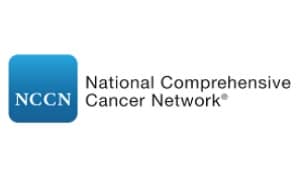
Professional Guideline on Antiemesis ›
Subscription required
This guideline describes use of the cannabinoids dronabinol and nabilone for nausea and vomiting.
More on safety
Cannabis-derived therapies may cause adverse effects on the central nervous system including acute or prolonged psychotic states, distress, anxiety, sedation, and more. Cannabis may not be recommended for use in individuals with some mental health conditions, and may also interact with prescription drugs and alcohol. Caution and medical supervision are advised.1Horn JR, Hansten PD. Drug interactions with marijuana. Pharmacy Times. December 9, 2014. Viewed January 5, 2023; International Programme on Chemical Safety. Cannabis sativa L. October 1989. Viewed October 9, 2021; American Cancer Society. Marijuana and Cancer. March 16, 2017. Viewed October 9, 2021; Kramer JL. Medical marijuana for cancer. CA: A Cancer Journal for Clinicians. 2015 Mar;65(2):109-22. Even so, the adverse effects of cannabinoids may compare favorably to those of other pain-management and cancer therapies.2Guzmán M. Cannabinoids: potential anticancer agents. Nature Reviews. Cancer. 2003 Oct;3(10):745-55. Some components of cannabis, such as CBD, provide therapeutic effects without any intoxicating effects.
Because THC is stored in fat and leaches out of the body fat to maintain a slowly diminishing blood level, users typically do not get an abrupt withdrawal reaction from sudden cessation of cannabis.3Abrams D. Email correspondence: Cannabis Abrams review. March 24, 2018. Any withdrawal symptoms are typically mild and might include anxiety, insomnia, loss of appetite, migraine, irritability and restlessness.4Crippa JA, Hallak JE et al. Cannabidiol for the treatment of cannabis withdrawal syndrome: a case report. Journal of Clinical Pharmacy and Therapeutics. 2013 Apr;38(2):162-4.
Cancer-promoting activity has been seen in breast, bronchial, hepatoma, and lung cell lines in preclinical studies.5Cridge BJ, Rosengren RJ. Critical appraisal of the potential use of cannabinoids in cancer management. Cancer Management and Research. 2013 Aug 30;5:304.
Safety and precautions: preclinical evidence
Cannabinoids promote progression of HPV-positive head and neck squamous cell carcinoma through p38 MAPK pathway activation in preclinical studies.6Liu C, Sadat SH et al. Cannabinoids promote progression of HPV-positive head and neck squamous cell carcinoma via p38 MAPK activation. Clinical Cancer Research. 2020 Jun 1;26(11):2693-2703. Cannabis has shown cancer-promoting activity in breast, bronchial, hepatoma, and lung cell lines in preclinical studies.7Cridge BJ, Rosengren RJ. Critical appraisal of the potential use of cannabinoids in cancer management. Cancer Management and Research. 2013 Aug 30;5:304.
Modes of action: activating cannabinoid receptors
All cannabinoids, whether natural or synthesized, interact with the endocannabinoid system (ECS) in the human body. Cannabinoids found in cannabis act on the ECS by mimicking the effects of our endogenous cannabinoids (endocannabinoids). Cannabinoids activate specific cannabinoid receptors, particularly CB1 found predominantly in the central nervous system and CB2 found predominantly in cells involved with immune function.8Abrams DI, Guzman M. Cannabis in cancer care. Clinical Pharmacology and Therapeutics. 2015 Jun;97(6):575-86.
Preclinical evidence of benefit
Notable preclinical evidence is listed here; clinical evidence is in How can cannabis and cannabinoids help you? What the research says ›
Improving treatment outcomes
- “Cannabinoids possess anticancer potencies against glioma cells, however this effect varies with the combinations and dosages used” is the conclusion of a 2021 systematic review of preclinical evidence.9Kyriakou I, Yarandi N, Polycarpou E. Efficacy of cannabinoids against glioblastoma multiforme: a systematic review. Phytomedicine. 2021 Jul 15;88:153533.
- Inhaled CBD not only limited tumor growth but also altered the dynamics of the tumor microenvironment in mice with glioblastoma10Khodadadi H, Salles ÉL et al. Inhalant cannabidiol inhibits glioblastoma progression through regulation of tumor microenvironment. Cannabis and Cannabinoid Research. 2021 Dec 16.
- Slower progression of many types of cancer including glioblastoma, breast, lung, prostate and colon cancer in preclinical studies11McAllister SD, Soroceanu L, Desprez PY. The antitumor activity of plant-derived non-psychoactive cannabinoids. Journal of Neuroimmune Pharmacology. 2015 Jun;10(2):255-67.
- Less angiogenesis, cell migration, and metastasis in preclinical studies12Bifulco M, Laezza C, Gazzerro P, Pentimalli F. Endocannabinoids as emerging suppressors of angiogenesis and tumor invasion (review). Oncology Reports. 2007 Apr;17(4):813-6.
- Cannabinoids, cannabidiol, and cannabigerol are effective anticancer agents against cholangiocarcinoma, capable of inhibiting the classic hallmarks of cancer.”13Viereckl MJ, Krutsinger K et al. Cannabidiol and cannabigerol inhibit cholangiocarcinoma growth in vitro via divergent cell death pathways. Biomolecules. 2022 Jun 20;12(6):854.
Optimizing your body terrain
- Hormone imbalance: inhibited progesterone activity, which creates precursors for sex steroid and glucocorticoid synthesis, with crude marijuana extracts from Delta(9)-tetrahydrocannabinolic acid (THCA)- and cannabidiolic acid (CBDA)-strains in preclinical trials14Watanabe K, Motoya E et al. Marijuana extracts possess the effects like the endocrine disrupting chemicals. Toxicology. 2005 Jan 31;206(3):471-8.
- Inflammation: anti-inflammatory action with CBD in preclinical studies15Nichols JM, Kaplan BLF. Immune responses regulated by cannabidiol. Cannabis and Cannabinoid Research. 2020 Feb 27;5(1):12-31; Pellati F, Borgonetti V et al. Cannabis sativa L. and nonpsychoactive cannabinoids: their chemistry and role against oxidative stress, inflammation, and cancer. Biomed Research International. 2018 Dec 4;2018:1691428.
- Cannabis suppresses the immune response in preclinical trials16Nagarkatti P, Pandey R, Rieder SA, Hegde VL, Nagarkatti M. Cannabinoids as novel anti-inflammatory drugs. Future Medicinal Chemistry. 2009 Oct;1(7):1333-49.
- Oxidation: both anti-oxidative and pro-oxidative actions with CBD in preclinical studies17Nichols JM, Kaplan BLF. Immune responses regulated by cannabidiol. Cannabis and Cannabinoid Research. 2020 Feb 27;5(1):12-31.
Helpful links for professionals
Shannon S, Opila-Lehman J. Cannabidiol oil for decreasing addictive use of marijuana: a case report. Integrative Medicine (Encinitas, California). 2015 Dec;14(6):31-5.
Miller NS, Oberbarnscheidt T, Gold MS. Marijuana addictive disorders and DSM-5 substance-related disorders. Journal of Addiction Research & Therapy. 2017 Jan; S11:013.
Health professional comment
We invite health professionals to contribute expertise or send us questions.
"*" indicates required fields
References

